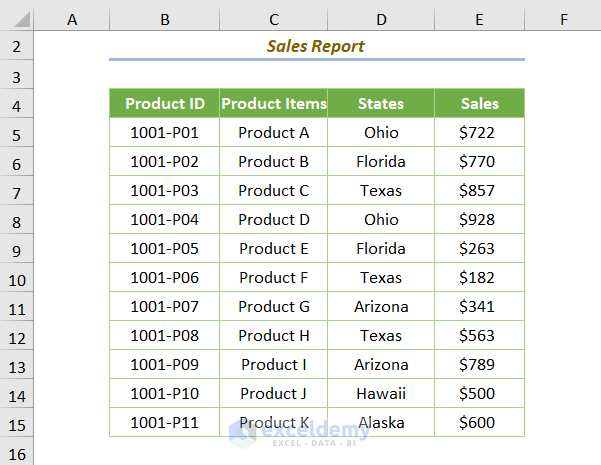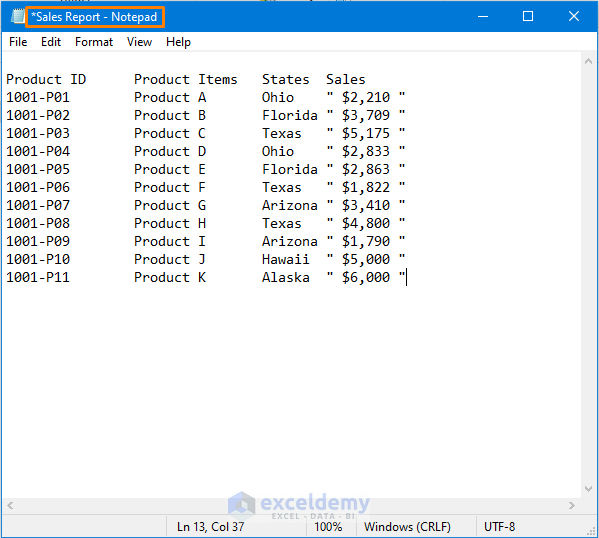

Sometimes your dataset might be stored in text (.txt) format. In Windows, text files are usually accessed using Notepad, a dedicated text editor application owned by Microsoft. Let’s explore how to convert from Notepad to Excel with columns. To demonstrate, we’ll use a Sales Report text file, which contains some Product Items along with Product ID, States, and Sales. Note: The above text is tab-delimited, which means that the tab is acting as the separator.
Step 1 – Open Notepad ➤ Create a blank workbook and click File > Open. 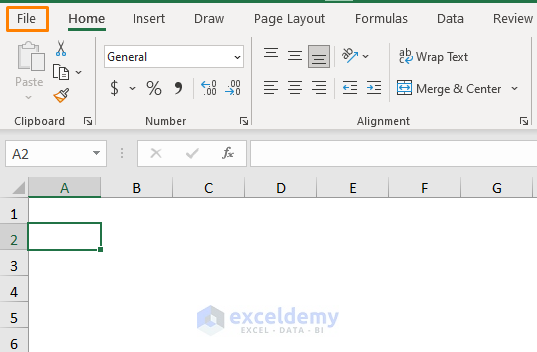 ➤ Navigate to the file location where the text file is located. ➤ Click on the text file. If you don’t see the file, make sure that Text Files is selected as the Format. ➤ Click Open.
➤ Navigate to the file location where the text file is located. ➤ Click on the text file. If you don’t see the file, make sure that Text Files is selected as the Format. ➤ Click Open. 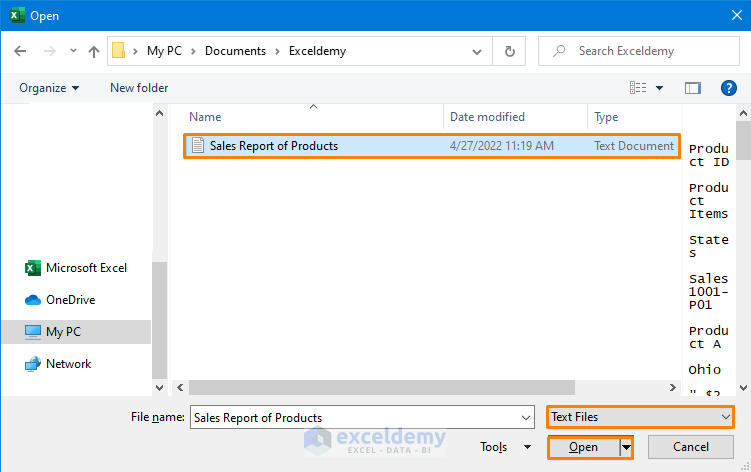 Step 2 – Using the Text Import Wizard A dialog box namely Text Import Wizard opens. ➤ Check the Delimited option. ➤ Check My data has headers. ➤ Click Next.
Step 2 – Using the Text Import Wizard A dialog box namely Text Import Wizard opens. ➤ Check the Delimited option. ➤ Check My data has headers. ➤ Click Next. 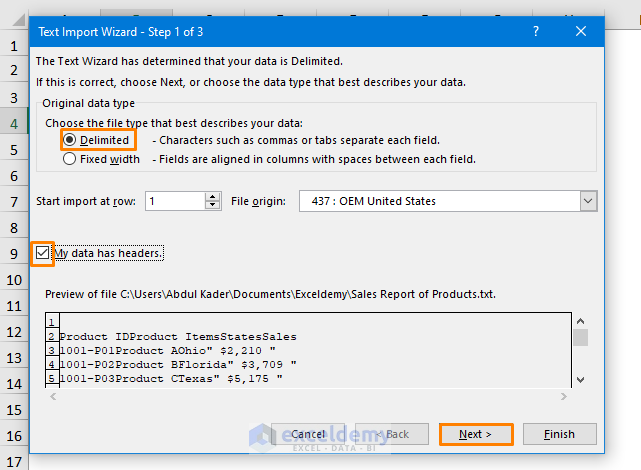 ➤ Select Tab under Delimiters. ➤ Click Next.
➤ Select Tab under Delimiters. ➤ Click Next. 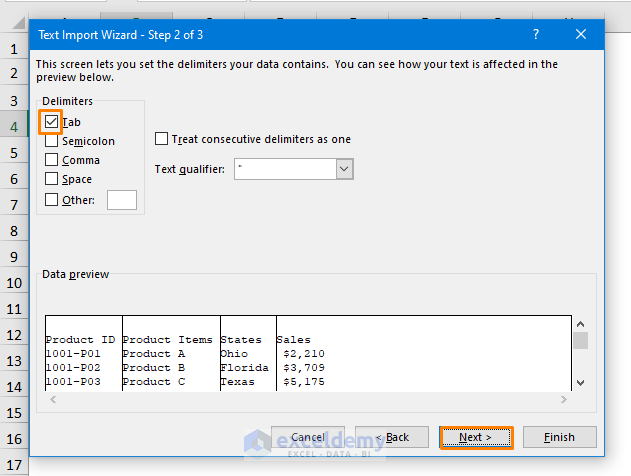 ➤ Select General as Column data format. ➤ Click Finish.
➤ Select General as Column data format. ➤ Click Finish. 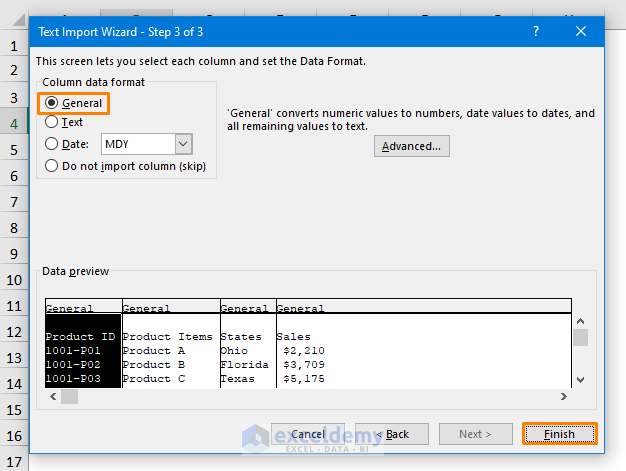 The text file is imported into Excel, with the data accurately transcribed into Columns.
The text file is imported into Excel, with the data accurately transcribed into Columns. 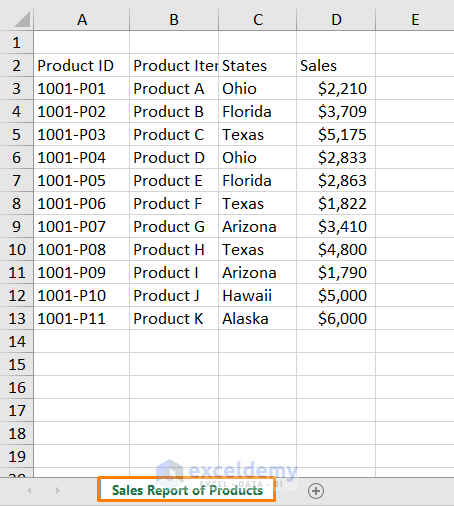 After changing the formatting as desired, the output is as follows:
After changing the formatting as desired, the output is as follows: 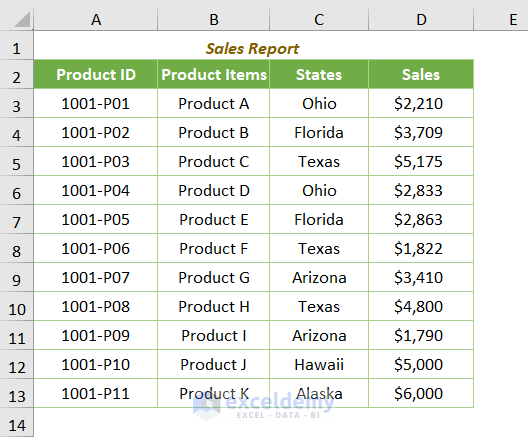 Read More: How to Convert Text File to Excel Automatically
Read More: How to Convert Text File to Excel Automatically
The downside of Method 1 is the inability to change the location in the worksheet where the imported data will be placed. This Method allows the location of the imported data to be specified, for example, starting from cell B4. STEPS: ➤ Open the text file in Notepad. ➤ Select the text to be imported and press CTRL + C to copy. 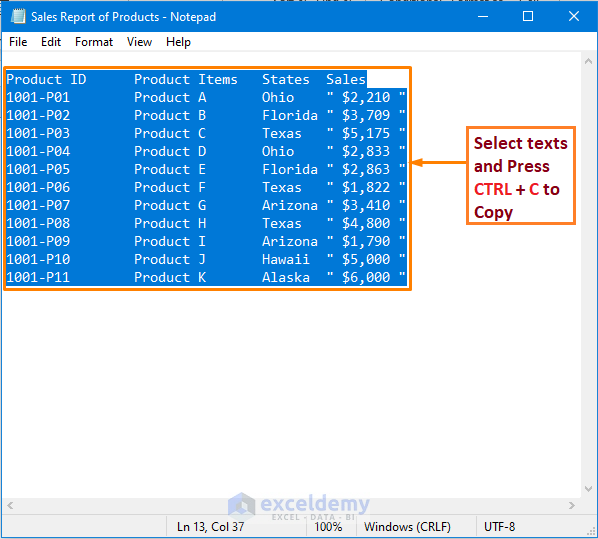 ➤ In the Excel worksheet, click cell B4 and press CTRL + V to paste.
➤ In the Excel worksheet, click cell B4 and press CTRL + V to paste. 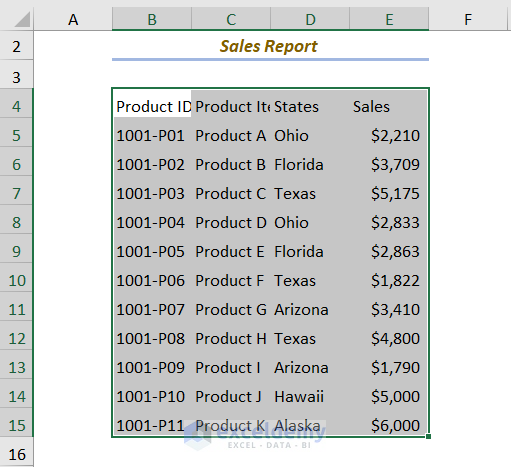 The output is as follows:
The output is as follows: 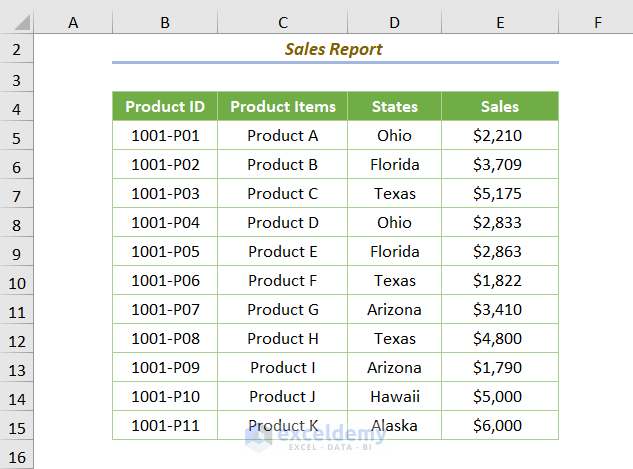
One of the drawbacks of the Method 2 is that it doesn’t split into columns if the text uses a comma delimiter. Here’s how to import comma delimited text: Step 1 – Copy and Paste the Texts ➤ Open the text file in Notepad. ➤ Select and copy the text to be imported. 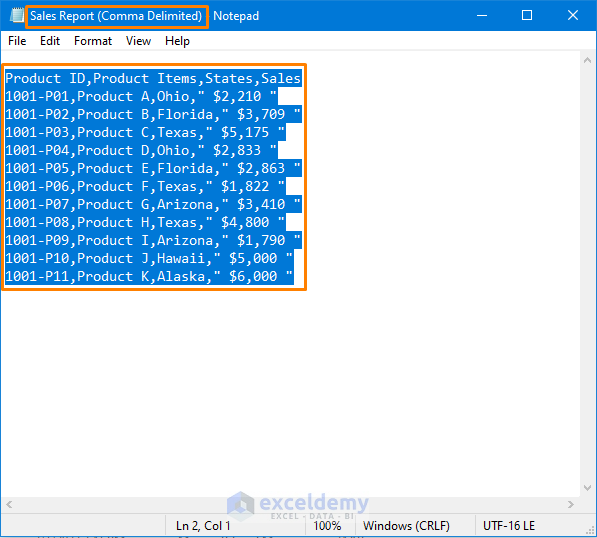 ➤ Paste the copied text into cell B4 as in Method 2. ➤ The text is imported but without separation into columns. Step 2 – Use Text to Columns Feature ➤ Click Data > Data Tools > Text to Columns. A dialog box opens.
➤ Paste the copied text into cell B4 as in Method 2. ➤ The text is imported but without separation into columns. Step 2 – Use Text to Columns Feature ➤ Click Data > Data Tools > Text to Columns. A dialog box opens. 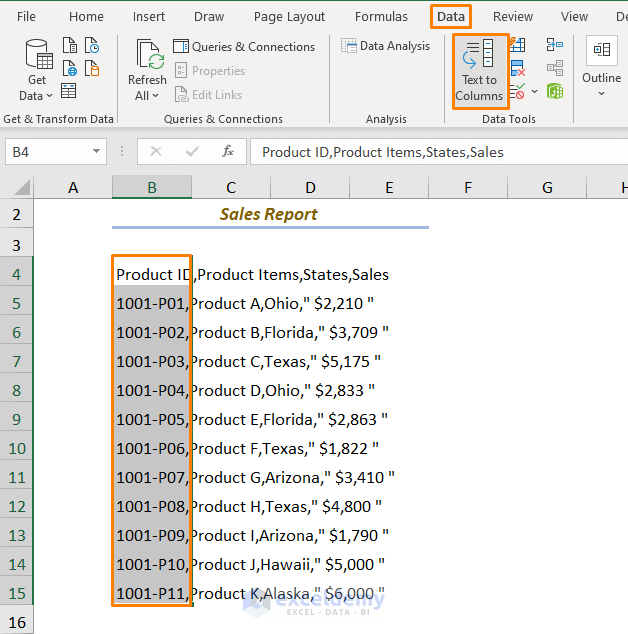 ➤ Select the Delimited data type. ➤ Click Next.
➤ Select the Delimited data type. ➤ Click Next. 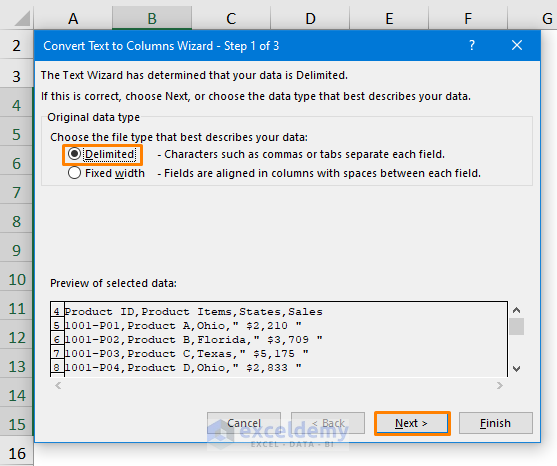 ➤ Select Comma under Delimiters. ➤ Click Next.
➤ Select Comma under Delimiters. ➤ Click Next. 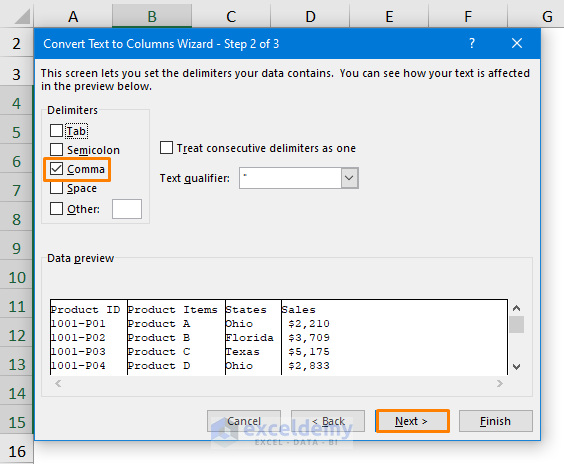 ➤ Keep the General data format checked. ➤ Click Finish.
➤ Keep the General data format checked. ➤ Click Finish. 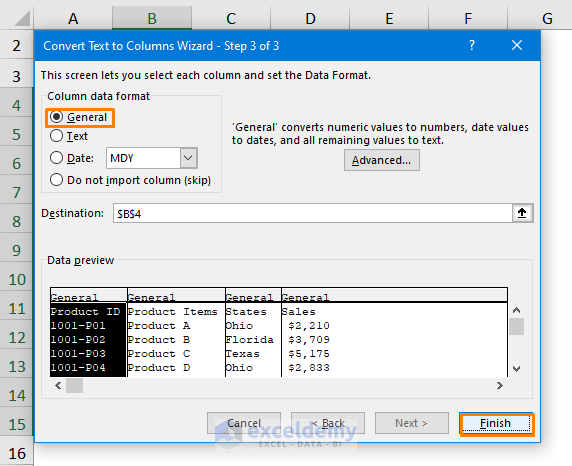 The imported text is split into Columns.
The imported text is split into Columns. 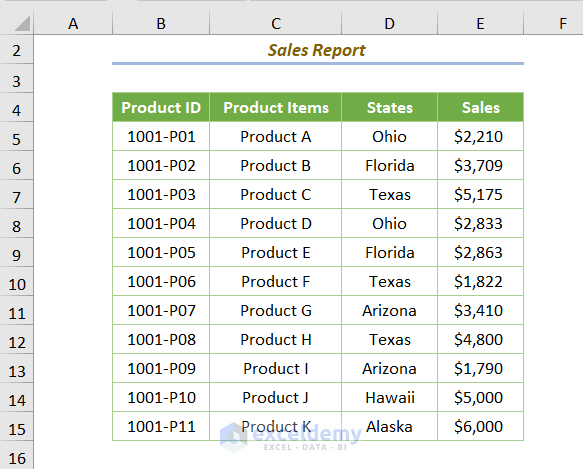
Power Query (a data transformation and preparation engine in Excel) is another way of easily importing text data into Excel. STEPS: ➤ Click the Data tab > Get Data > From File > From Text/CSV. 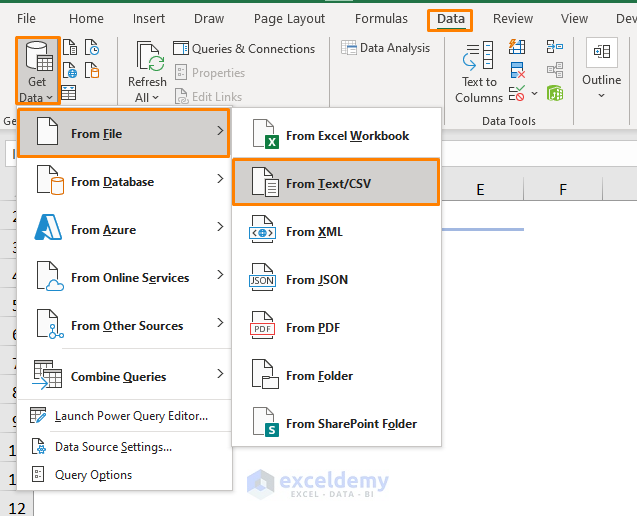 with Columns Using Power Query" width="637" height="516" />➤ Click the text file. ➤ Click the Import button.
with Columns Using Power Query" width="637" height="516" />➤ Click the text file. ➤ Click the Import button. 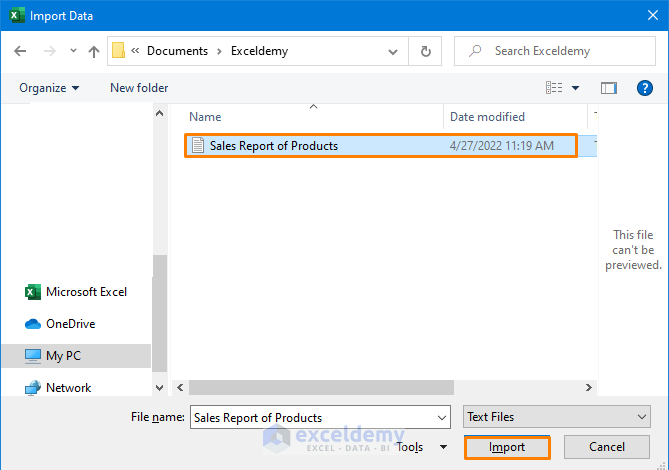 with Columns Using Power Query" width="669" height="470" />➤ A preview of the output appears, where the Tab is selected as the Delimiter by default. ➤ Select the Load to option to specify a specific import location.
with Columns Using Power Query" width="669" height="470" />➤ A preview of the output appears, where the Tab is selected as the Delimiter by default. ➤ Select the Load to option to specify a specific import location. 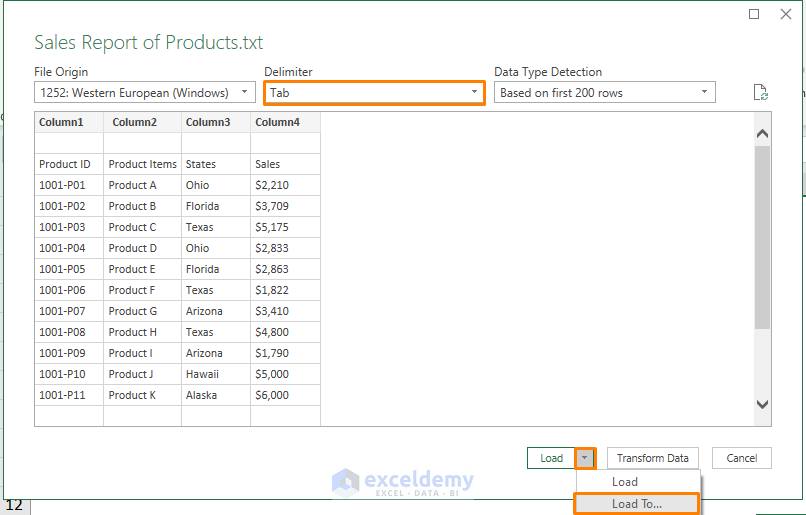 ➤ Specify the location (e.g. =PowerQuery!$B$4). ➤ Click OK.
➤ Specify the location (e.g. =PowerQuery!$B$4). ➤ Click OK. 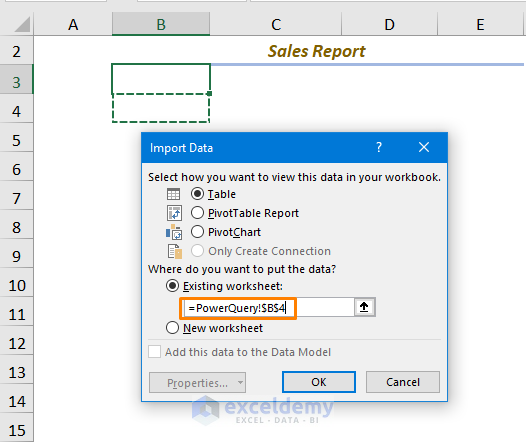 The text is imported separated into Columns.
The text is imported separated into Columns. 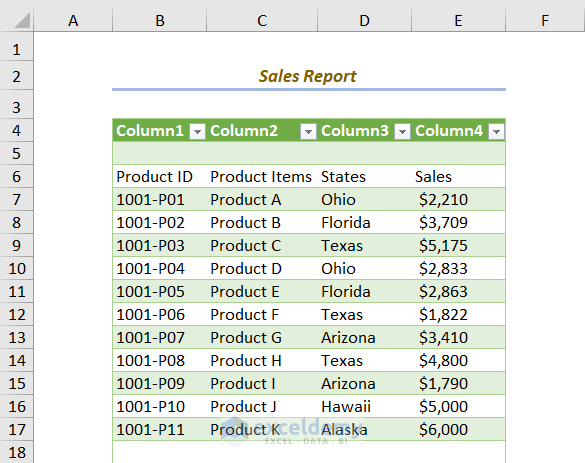 with Columns Using Power Query" width="585" height="463" />
with Columns Using Power Query" width="585" height="463" />
STEPS: ➤ Open a VBA module by clicking Developer > Visual Basic (or pressing ALT + F11).  ➤ Go to Insert > Module.
➤ Go to Insert > Module. 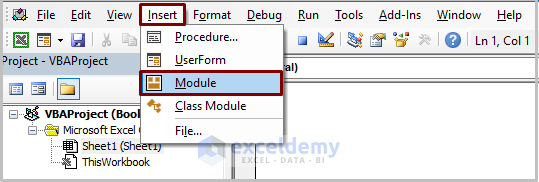 ➤ Copy the following code into the newly created module:
➤ Copy the following code into the newly created module:
Sub ConvertNotepadToExcel() Dim Txt As String Open "E:\Exceldemy\Sales Report.txt" For Input As 60 Range("B4").Select Do Until EOF(60) Input #60, Txt ActiveCell.Value = Txt ActiveCell.Offset(1, 0).Select Loop Close (60) End Sub 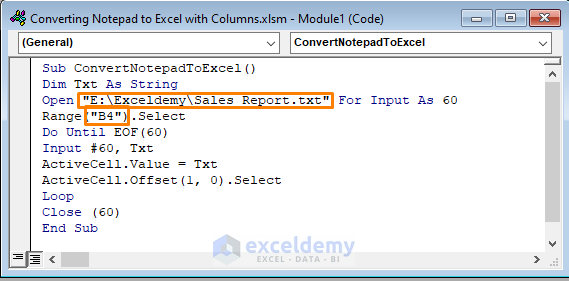
⧬Two things that you have to change:
After running the code (press F5), the following output is returned:
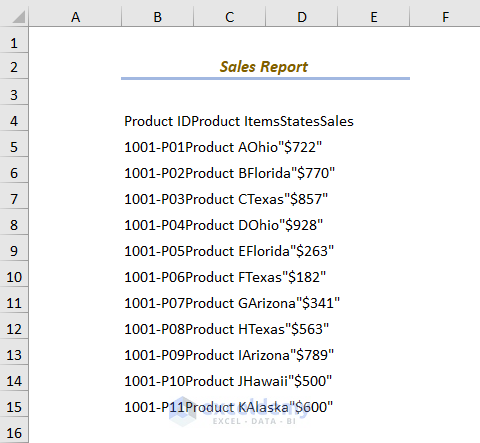 with Columns Using VBA Code" width="480" height="443" />
with Columns Using VBA Code" width="480" height="443" />
After using the Text to Columns feature detailed in step 2 of Method 3 and formatting, the above output will display as follows:
